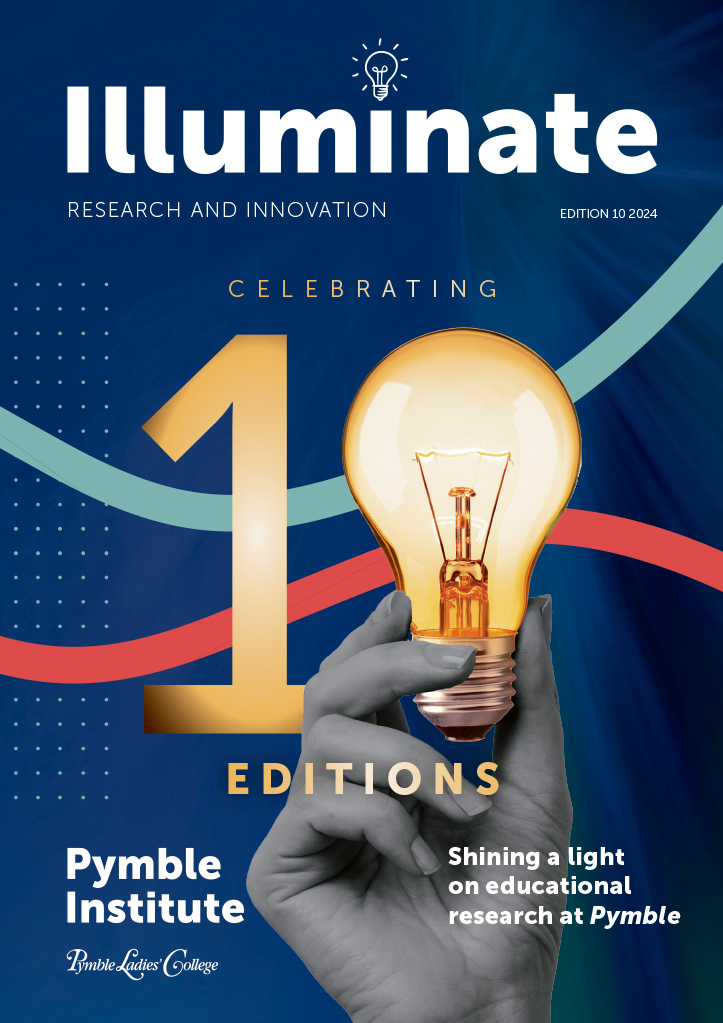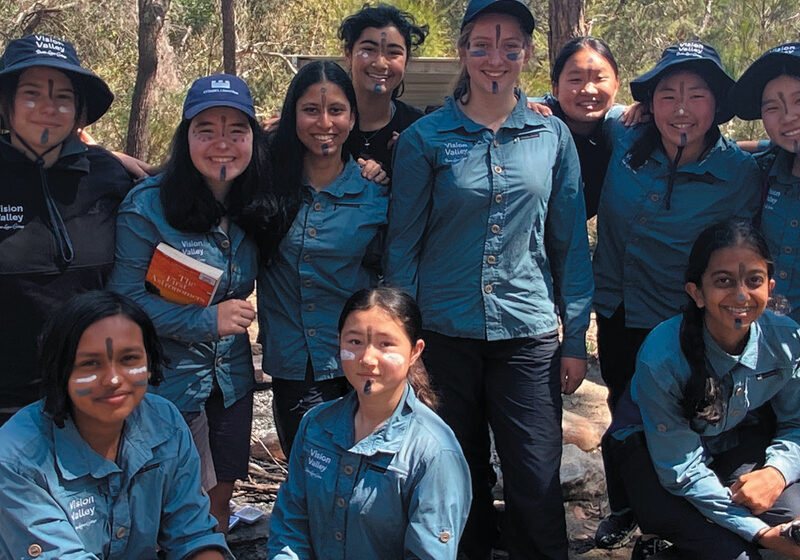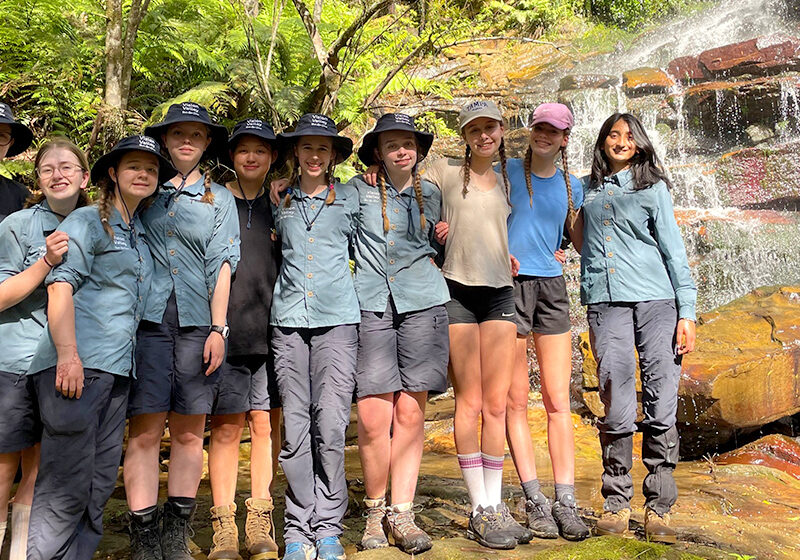
One of the strategic goals of Pymble Ladies’ College this year is to develop a service framework and, to kick-start the project, a review of existing literature was conducted. The value of this approach is found in the depth of understanding of the issues involved and the opportunity to involve students, parents and staff in the journey to strategic change.
The first part of this article reflects on ways the academic process of finding, reviewing and analysing literature can be used in school decision making to support change strategies. The second part presents the literature review we wrote on the topic of service, as an example of this approach in action.
PART ONE
Research skill and mindsets: The unassuming power of the academic literature review
How a literature review can be used to develop strategy?
The College’s Social Intelligence strategic pillar is focusing on building a service framework to guide our approach to and decision making around charity, community service and service learning. The first phase of the project has entailed researching the field via a literature review, allowing an investigation into key concepts to take place.
A literature review is a useful addition to strategy work in a school as it allows the team working on the project to establish common ground and shared understanding about the terms, definitions, ideas and people being referenced. We believe it is important to emphasise that while a literature review is not prescriptive, it gives those working in schools, especially teachers and educational leaders, a clearer sense of the current scholarship, allowing for more informed decision making. This approach puts people ‘on the same page’ and assumptions and misunderstandings are explored before being carried forth untested. Understanding more about the terrain under exploration ultimately allows for greater confidence in knowing what you know, what you need to know and, if time and resources permit, further investigation into specific areas may be possible.
The guiding questions for the review into service for Pymble Ladies’ College were:
- What are Pymble’s goals with service, charity, service learning and giving back to the community?
- What characteristics of our community do we need to consider?
- In developing a new approach to service, what do we want to maintain? What do we want to change?
- How would we like service and giving back to be connected to other strategies and actions in the College?
What is a literature review?
Literature reviews are common features of tertiary academic studies and they typically appear as a component within broader research projects with the literature as a starting point. They provide a way of understanding the topic and capturing what others have already researched and published about it (Creswell, 2018; Paul & Barari, 2022; Lim et al., 2022). Literature reviews are important tools to prevent the researcher launching, blinkered, into a field and replicating material with a lack of awareness of work already in existence. They also bring the researcher in alignment with current information and developments in the field. Additionally, when people are interested in a topic and they begin speaking and writing about it, literature reviews assist all involved to appreciate the depth, breadth and complexity established by others (Efrat Efron & Ravid, 2019; Leite et al. 2019), allowing us to hone the specific angles we want to take in our own work.
There are many ways the literature review begins to appear in the work of secondary school students, as they learn the associated skills, such as in annotated bibliographies where students write paragraphs about each item to summarise some of the research they have used. Recommendations for starting a literature review include brainstorming and mind-mapping to surface ideas which can be searched online and in library databases (Phelps, Fisher & Ellis, 2007). Effective search strategies are imperative for creating a literature review and librarians play an integral role in teaching both school and postgraduate students how to make the most of online tools.
Using a literature review to connect with academic researchers
An unexpected outcome in producing our literature review into service was coming across a large and ongoing body of research which proved especially relevant and inspiring for our project. The Longitudinal Study of Australian Children (LSAC) includes research on the health, wellbeing, education and family contexts of over 22,000 young Australians (who have been involved in the research for over twenty years, since they were babies). A number of papers relating to service, kindness and prosocial behaviours have resonance for the College’s K-12 educational context. In their work using LSAC data, Bosco Rowland and Tracey Evans-Whipp (2023) made the point that, ‘during the adolescent years (13 to 17 years), engaging in volunteering reduces the likelihood of poor mental health by 28 per cent’. This compelling statistic affirmed the importance of a service learning framework in a school as a way of facilitating students’ involvement in all kinds of prosocial activities, including volunteering through school and with the family.
‘Prosocial behaviours are activities that have the aims of benefiting others or society … Prosocial behaviours towards others are developmentally important, as they can help children and young people learn to take another person’s perspective, negotiate difference, and develop social and emotional skills’. (Rowland & Evans-Whipp, 2023, p. 1).
We were delighted to be able to invite Dr Bosco Rowland from Monash University in Melbourne to a K-12 staff meeting in Term 2 2024 to speak about his research. Dr Rowland’s work focuses on developing social behavioural principles relating to contemporary public health challenges. He examines behaviours associated with health, social and emotional development, and explores the role of risk and protective factors. Especially of interest to Pymble was the connection between volunteering during the school years and a reduction in poor mental health, as well as the wider notion of prosocial behaviour which staff recognised as already being a core part of the College’s Junior School (Kindergarten to Year 6). Junior School staff recognised that their efforts in building a ‘community of kindness’ and the recent introduction of a ‘service journal’ were research-informed steps towards developing prosocial skills in younger children. Dr Rowland’s research confirms what many believe intuitively, that building strong foundations around service in the younger years will provide protective mental health layers as children enter adolescence.
The professional learning session lead by Dr Rowland allowed Pymble teachers to connect directly with an academic researching and publishing in the field, and introduced the concept of service to teachers through an evidence-based, academic lens. The following comments reflect the value staff found in the session:
“Great speaker, really wonderful to see the research and very proud that the Junior School has been focusing on the three elements – to self, to others and to the environment.”
“I loved seeing evidence for what seems like common sense.”
“This session was great. I loved hearing about the research behind the importance of service/volunteering and its impact not only on the world around us but on the wellbeing of those doing the service/volunteering. It was wonderful hearing that what is being done in the Junior school with the focus on Kindness to self, others and the environment/world is supported by this research too. I would love to work with Bosco more on this and learn more about his research and the implications for Pymble!”
A sample of a literature review in the College’s strategic context
Below is the literature review we constructed on the topic of service which aims to take readers through key aspects of the field and provoke thought about this important topic. In this case, the review was not part of a larger academic project but, instead, formed the groundwork for the practical task of redefining and extending the philosophical understanding of one of the College’s most important areas – putting care into action through being of service to others.
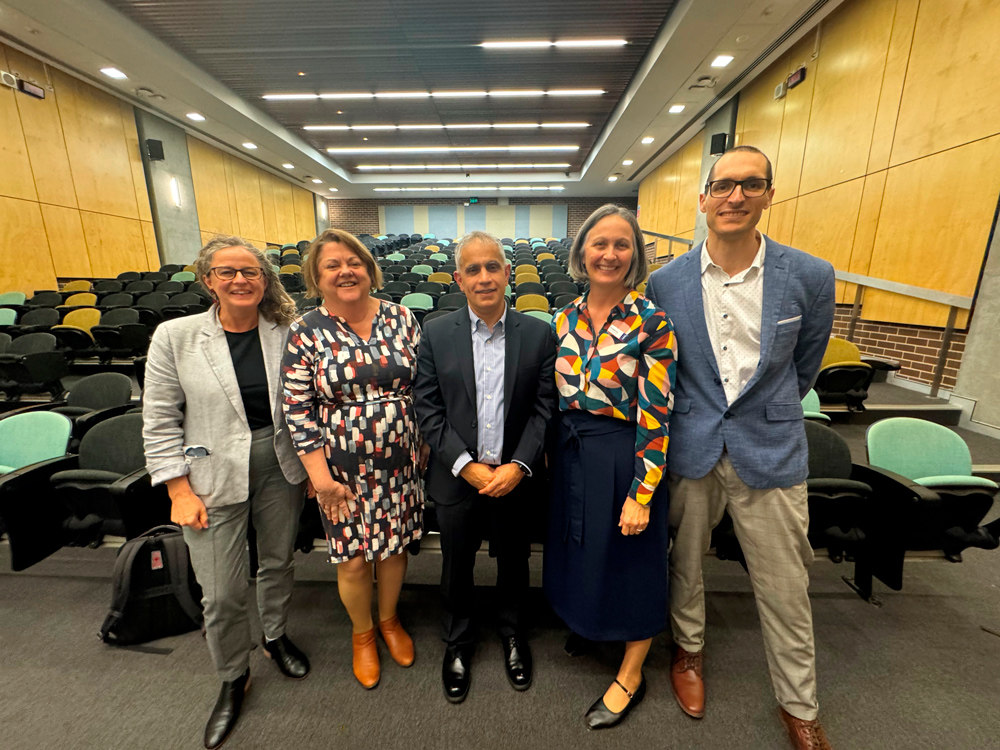
College staff with Dr Bosco Rowland. From left to right, Dr Kim Bunny, Mrs Kerryl Howarth, Dr Bosco Rowland, Dr Sarah Loch and Dr Joshua McDermott
PART TWO
Literature review: Service and volunteering, and wellness of children and young people literature review
Introduction
Many people have anecdotal experience of the benefits of service, such as feeling purposeful, needed and happy. Research shows a range of health and wellness benefits connected to engagement in service and volunteering. This is especially important for children and young people as these benefits have positive impact at the time and into the future. This powerful interconnection establishes cycles whereby people volunteer and give service to others, and benefits are felt by the people giving and receiving the service which impacts the whole community. This brief literature review focuses on social impact, health and academic benefits with a focus on children and young people.
Social intelligence and social justice
Service connects the individual with the world beyond their immediate network in potentially significant ways. Service programs can promote a sense of engagement in the community and encourage youth to think about the social implications of their own political roles in society (Kuperminc et al., 2001, 448-9; Delgado 2016; Eccles and Barber, 1999; DeMartini, 1983). This was observed in Yates and Youniss’ (1999) case study in which secondary school students were involved in a year-long service program. The participants reported that the service not only exposed them to the lived experiences of others, but also provided opportunities to reflect on their own role in society. The researchers observed that, following the experience, ‘students believed that government policies and actions had a tangible impact on their lives, and they debated these policies with concern and confidence’ (Yates & Youniss, 1999, 510; Delgado, 2016, 173-4). Indeed, it seems participants in service can emerge from the experience more engaged with the world around them and recognise their ability to function as agents for change.
Psychological and emotional health
Research suggests that significant psychological and emotional benefits are strongly associated with young people’s acts of giving service to the community (DeMartini, 1983; Glancy et al., 1986; Moore and Allen, 1996; Youniss et al., 1997; Rowland et al., 2023). Prosocial behaviours are associated with increased resilience and are negatively correlated with clinical depression in young people (Eli et al., 2021; Rowland & Evans-Whipp, 2023). Such benefits can be seen in Kuperminc, Holditch and Allen’s (2001, 451-455) analyses of a range of cross sectional and longitudinal studies which found that adolescents involved in service are less likely to be involved with risky behaviours and that ‘psychological well being, empathy, and prosocial attitudes’ are strengthened (Moore & Allen, 1996; Kuperminc et al., 2001, 451; Eisenberg et al., 2014, 67-8). Significantly, early involvement with service provides pronounced and long-lasting benefits. When young people are involved in service before the age of thirteen, the likelihood of clinical levels of emotional symptoms two years later are reduced by approximately 28 per cent (Rowland & Evans-Whipp, 2023, 6). It is observed that service can provide a ‘preventative approach’ to mental illnesses: essentially a protective component for supporting mental wellbeing in adolescence (Kuperminc et al., 2001, 455; Larson, 1994; Eccles and Barber, 1999).
Physical Health
Studies suggest a protective relationship between prosocial activities such as volunteering and physical outcomes for young people over the long term. The findings of randomised controlled trials show that weekly volunteering can improve cholesterol levels and reduce potentially harmful inflammation and obesity. Researchers observe that young people who engage in volunteering, ‘not only help others, but also benefit themselves, suggesting a novel way to improve health while simultaneously making positive contributions to society’ (Evans-Whipp & Gasser, 2018, 122; Moreno et al., 2013, 400; Schreier et al., 2013, 330). This supports previous observational studies which have established that giving to others functions more broadly as a statistically significant predictor of longevity (Brown et al., 2003).
Academic success
Academic success of young people appears to be positively impacted by service (Lamborn et al. 1992; Newmann et al., 1992; Kuperminc, 2001). Kuperminc, Holditch and Allen (2001, 449) observe that Year 10 students involved in service, ‘had better academic performance and reported less involvement in problem behaviors in 12th Grade’ (see also Eccles & Barber, 1999; Moore & Allen, 1996). Elder and Conger (2000, 158-9) found that service encourages a range of qualities which appear to contribute to academic success, such as ‘hard work, responsibility, and integrity’. The interconnectedness of service appears to pay dividends, with participants not only provided with more opportunities to engage but, significantly, the ‘belief in their ability to build upon them’ (Elder & Conger, 2000, 159). Longitudinal studies indicate this has long term benefits for academic success into early adulthood (Moorfoot et al., 2015). The emotional and psychological benefits of service appear to pave the way for academic success.
Conclusion
The multitudinal impacts of service work to positively impact different stages of life, through improving social, emotional, and physical health, as well as academic success. The literature indicate that a combined approach of engaging in academic learning, as well as physical activities, alongside opportunities for engaging in service for others can be a significant benefit in the lives of children and young people. Volunteering and service opportunities provide individuals and schools with ways of building protective safety nets to boost prosocial, and reduce antisocial, behaviours and experiences. It is possible that one type of wellness boosts another, which indicates giving service to others and volunteering within the community can improve educational and wellbeing outcomes for students, while they are giving meaningfully to others.
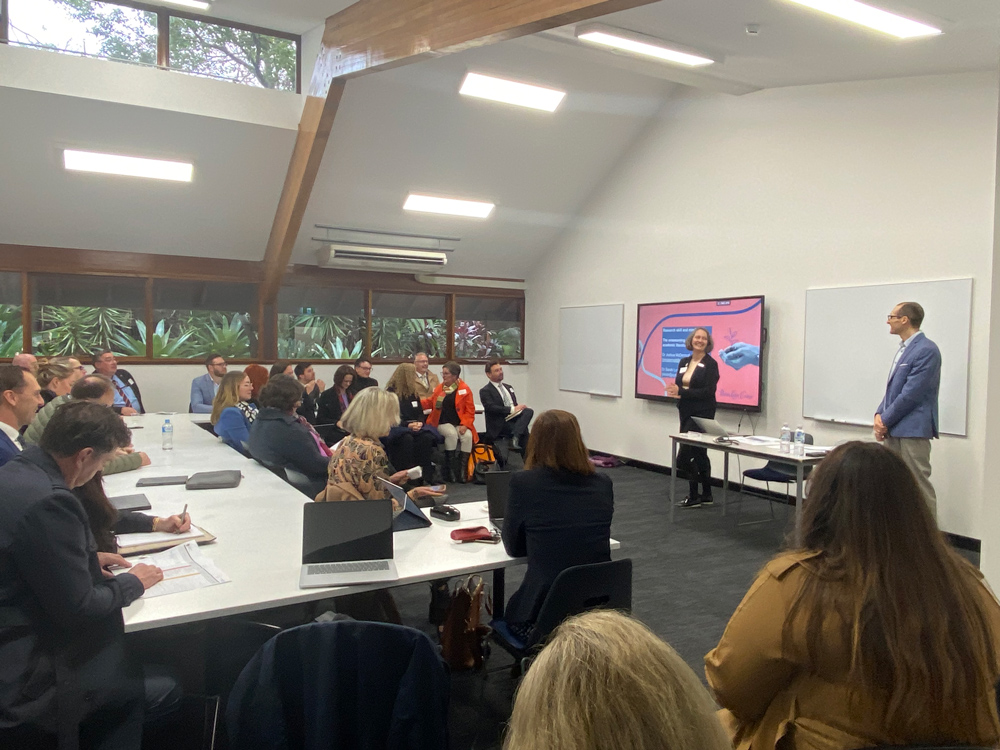
Sarah Loch and Joshua McDermott presenting to the Research Invested Schools Network conference, held at Pymble Ladies’ College, August 2024
Key points to consider
- Literature reviews are useful in setting the scene before embarking on a specific project.
- They are not solely for academic research projects.
- Knowing how the review will be used is a helpful starting point, but the freedom to explore the literature without an agenda is also important.
- As you read the literature, look for themes that are both familiar and that extend your understanding.
- Organising readings into clear themes assists in covering key sub-topics.
- Searching for authors who both support and challenge the topic extends the usefulness of the review.
- The evidence base established by the literature review connects decision making to contemporary and historical discourse, which furthers understanding.
- An academically rigorous overview of a topic can support a range of projects in a school.

